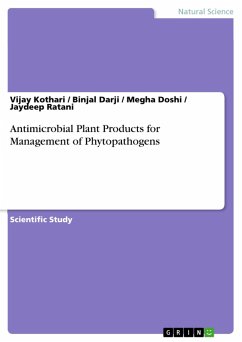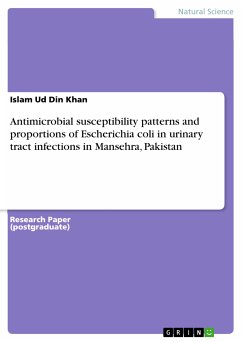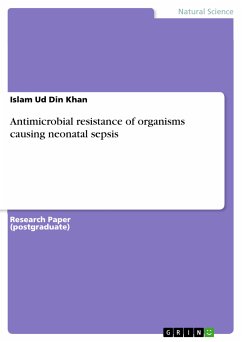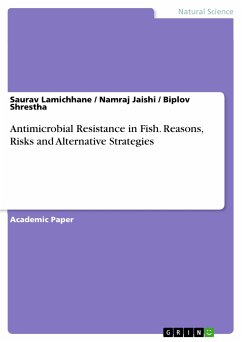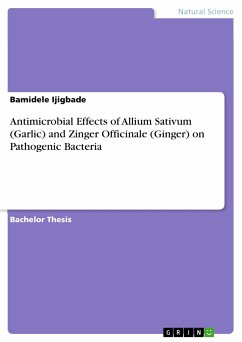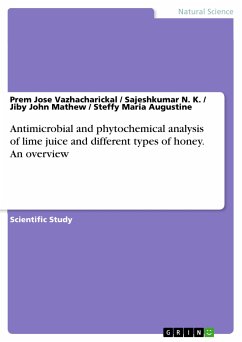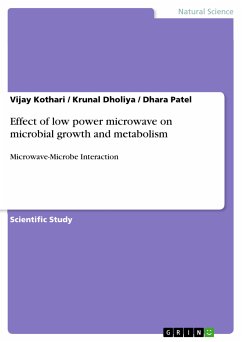Scientific Study from the year 2012 in the subject Biology - Micro- and Molecular Biology, Nirma University (Institute of Science), language: English, abstract: Extracts of five different plant seeds- Syzygium cumini, Pheonix sylvestris, Manilkara zapota, Tamarindus indica, and Annona squamosa- prepared by Microwave Assisted Extraction (MAE) method were screened for their antimicrobial activity against certain phytopathogenic microorganisms. Ethanolic extract of S. cumini was found to possess highest average total activity against susceptible microbes. Total activity was found to have a positive correlation with the extraction efficiency. Methanolic extract of T. indica exerted bactericidal action against Agrobacterium tumefaciens and Pseudomonas syringae. Ethanolic extract of P. sylvestris was able to protect cabbage leaf against Xanthomonas campestris. Acetone extract of M. zapota was able to reduce aflatoxin production in Aspergillus parasiticus by >50 %. Curcumin proved bactericidal against X. campestris.
Dieser Download kann aus rechtlichen Gründen nur mit Rechnungsadresse in A, B, BG, CY, CZ, D, DK, EW, E, FIN, F, GR, HR, H, IRL, I, LT, L, LR, M, NL, PL, P, R, S, SLO, SK ausgeliefert werden.

